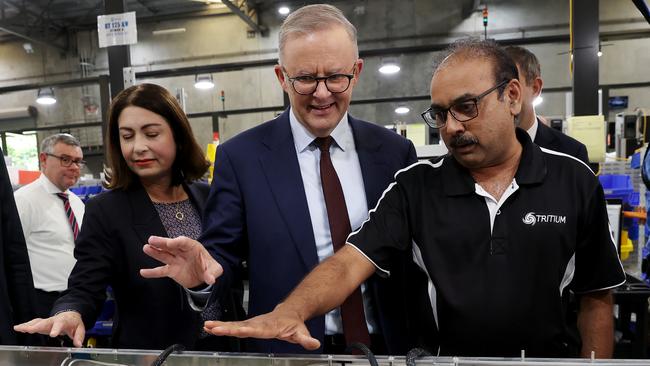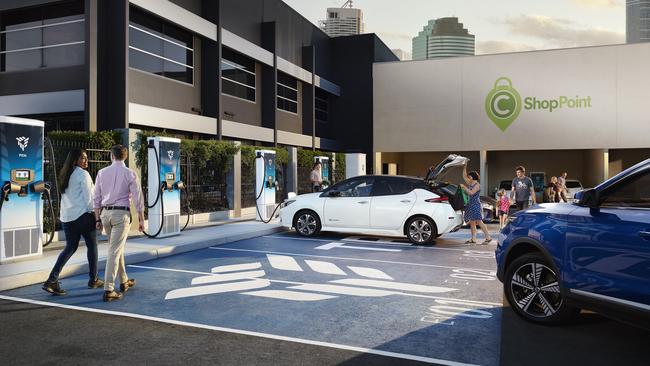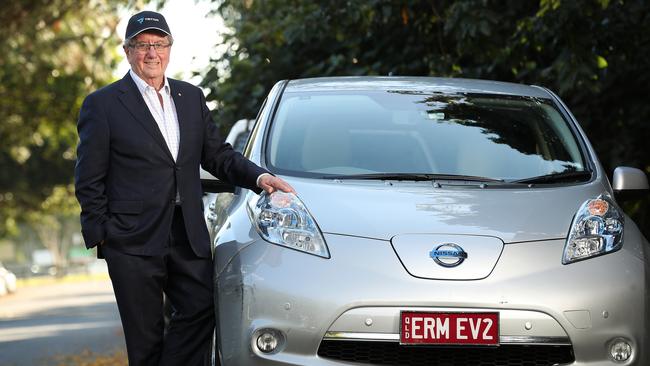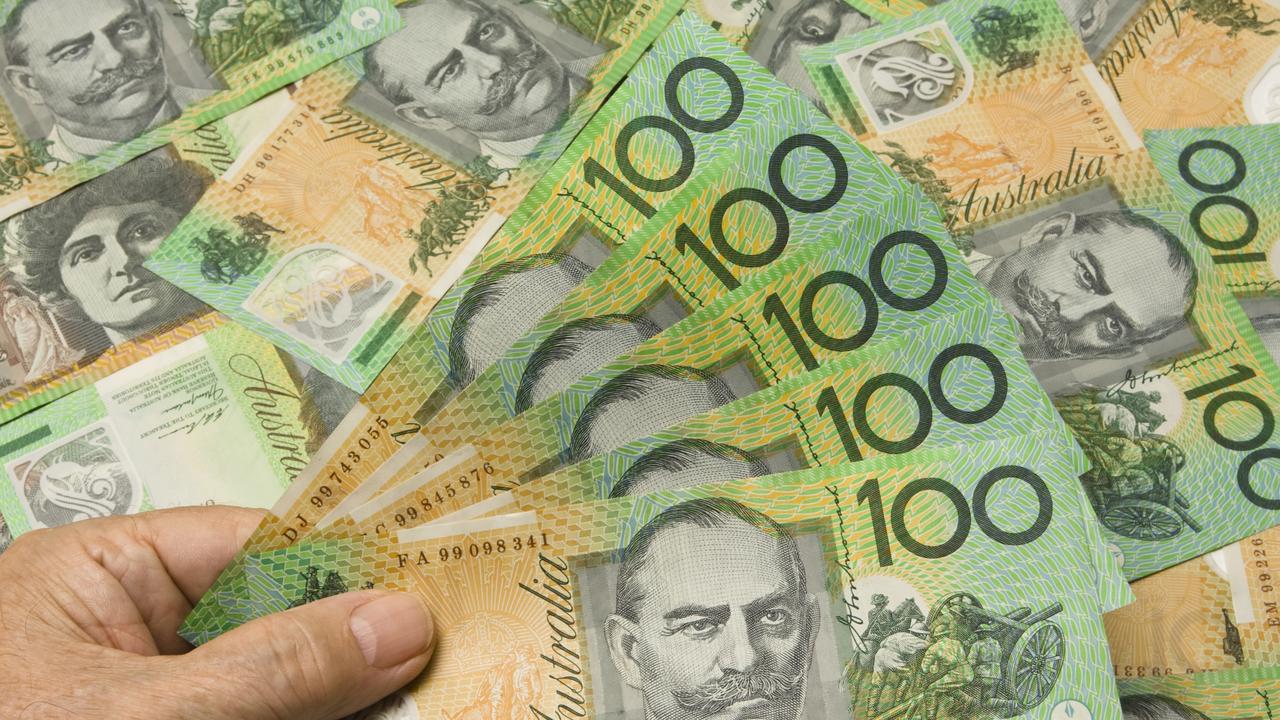300 jobs saved as failed Tritium sold to Indian firm for $45m
An Indian EV charging giant will pay $45m for failed Tritium, saving hundreds of jobs at its Brisbane headquarters but leaving creditors virtually empty handed.

Business
Don't miss out on the headlines from Business. Followed categories will be added to My News.
Indian electronics giant Exicom will pay $US30m ($45m) for failed Australian fast-charger manufacturer Tritium, saving hundreds of jobs at its Brisbane headquarters but leaving creditors virtually empty handed.
Exicom Tele-systems, India’s largest manufacturer of electric vehicle chargers, said the acquisition would allow it to unlock long-term growth and expand its global footprint. About 300 jobs will be retained at Tritium’s HQ in Brisbane, which had previously been spruiked by Prime Minister Anthony Albanese as the future of advanced manufacturing in Australia.
Queensland richlister Trevor St Baker, a director and major financial backer of Tritium, said the Exicom acquisition was good news for the company’s workers but not so much for investors. “It’s not good for creditors or shareholders,” said Mr St Baker. “We were a $100m investor in the company but it’s likely creditors will get very little.” The company has total debts of more than $500m.
He criticised Australian governments for not backing Tritium when it sought a financial lifeline last year. “Australian bureaucrats were not prepared to back co-investment in Tritium with local investors,” he said. “We have the French government backing French companies, the German government backing German companies and the Italian government backing Italian companies. But in Australia the government would prefer to support quarries.”
Once valued at $2bn on the Nasdaq, Tritium had gained traction in the global EV fast charging market. and was feted by the White House.

Mr St Baker said the rescue package for Tritium also would be good news for his Evie Networks, one of Tritium’s key customers. Evie Networks, founded in 2017, has ambitions to build Australia’s largest electric vehicle fast-charging network.
Exicom chief executive Anant Nahata said in a statement announcing the deal on Thursday night that the acquisition “is in line with Exicom’s strategic vision to be a key contributor to the world of tomorrow by enabling an emission free future for mobility,”
“Exicom and Tritium have a complementary sales and product footprint and have each established leadership in their respective regions,” said Mr Nahata.
“We look forward to working with Tritium’s employees, customers, partners and other stakeholders to grow the business further and provide faster, more reliable charging experiences to EV users across the globe.”
Tritium was founded in 2001 by engineers David Finn, James Kennedy and Paul Sernia, and grew in recent years, winning deals with global players such as BP and Shell.
Administrators and receivers were appointed in April this year, with the company’s debts expected to top more than half a billion dollars.

Receivers and managers McGrathNicol had expected to sell the company, postponing a creditors meeting from May to September to allow bids or sale options to be assessed.
Mr St Baker, who invested heavily in the company, is owed more than $100m.
The company’s failure had been a blow to the Albanese government’s industry ambitions. Mr Albanese had made several visits to the Brisbane site over the past few years to promote its credentials as a poster child for advanced manufacturing in Australia.
Exicom said Tritium is recognised as a leading industry brand globally, selling more than 13,000 DC fast chargers in 47 countries.
As part of the deal, Exicom will acquire Tritium’s manufacturing facility in Tennessee, USA, as well as the engineering centre in Brisbane.
“The acquisition expands Exicom’s global reach and amplifies its commitment to research and development to drive innovation in this growing industry,” the company said.
Originally published as 300 jobs saved as failed Tritium sold to Indian firm for $45m


